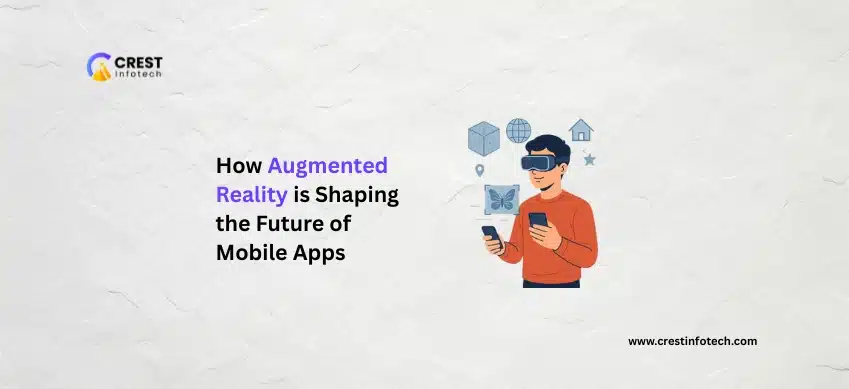Augmented Reality (AR) is rapidly transforming the mobile app experience, blending digital content with the real world. From gaming to retail and education, AR is unlocking new levels of interactivity, engagement, and innovation. This article explores how AR is influencing mobile app development and what the future holds.
What is Augmented Reality?
Augmented Reality overlays digital information—such as images, animations, or data—onto the real world using a mobile device’s camera and sensors. Unlike Virtual Reality (VR), which creates a fully immersive environment, AR enhances the user’s real-world surroundings.
Why AR Matters in Mobile Apps
-
Immersive user experiences: Boosts engagement with interactive content
-
Practical utility: Offers real-time information and visualization
-
Competitive edge: Differentiates your app in crowded markets
-
Improved decision-making: Try-before-you-buy functionality
Popular Use Cases of AR in Apps
1. AR Gaming
Games like Pokémon GO show how AR can drive massive user engagement and viral growth.
2. Retail & E-commerce
AR enables users to visualize products—like furniture or clothing—before purchase.
3. Education
AR makes learning interactive by visualizing complex topics in 3D environments.
4. Navigation
AR-powered directions improve user experience for indoor and outdoor navigation apps.
5. Healthcare
Medical training apps use AR to simulate surgeries and anatomy in real-time.
Top AR Development Platforms
-
ARKit – Apple’s AR SDK for iOS devices
-
ARCore – Google’s AR SDK for Android apps
-
Unity + Vuforia – For building cross-platform AR experiences
Challenges in AR App Development
-
High development and testing complexity
-
Device compatibility and hardware limitations
-
User privacy and permission concerns with camera access
Future Outlook
With the rise of 5G, improved mobile processors, and wearable tech, AR is poised to become even more immersive and mainstream. Expect broader adoption across industries in the coming years.
Final Thoughts
AR is redefining how users interact with mobile apps. Whether for entertainment, shopping, learning, or healthcare, integrating AR can create memorable, effective experiences. Developers who embrace this technology early are more likely to lead the next wave of mobile innovation.



